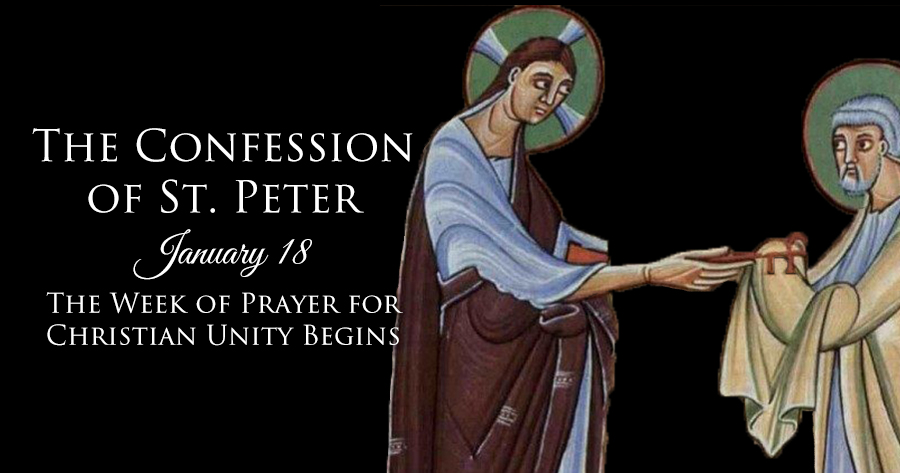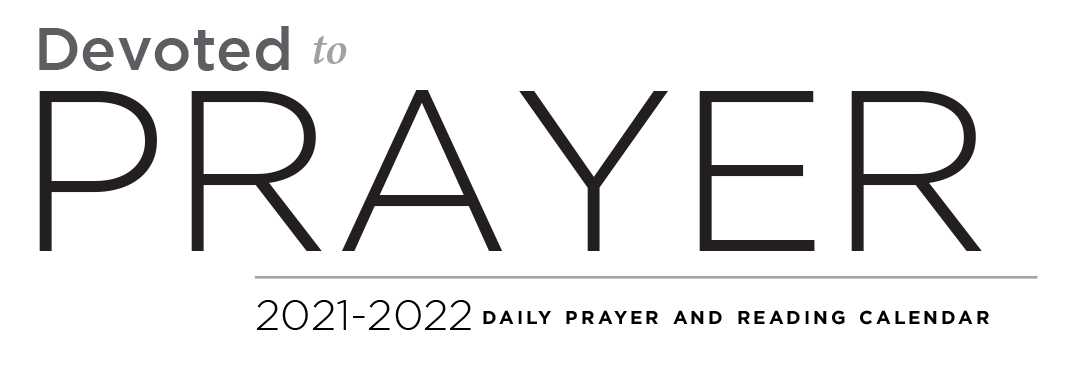
Acts 4:8–13 (Listen)
8 Then Peter, filled with the Holy Spirit, said to them, “Rulers of the people and elders, 9 if we are being examined today concerning a good deed done to a crippled man, by what means this man has been healed, 10 let it be known to all of you and to all the people of Israel that by the name of Jesus Christ of Nazareth, whom you crucified, whom God raised from the dead—by him this man is standing before you well. 11 This Jesus is the stone that was rejected by you, the builders, which has become the cornerstone. 12 And there is salvation in no one else, for there is no other name under heaven given among men by which we must be saved.”
13 Now when they saw the boldness of Peter and John, and perceived that they were uneducated, common men, they were astonished. And they recognized that they had been with Jesus.
1 Peter 5:1–4 (Listen)
Shepherd the Flock of God
5:1 So I exhort the elders among you, as a fellow elder and a witness of the sufferings of Christ, as well as a partaker in the glory that is going to be revealed: 2 shepherd the flock of God that is among you, exercising oversight, not under compulsion, but willingly, as God would have you; not for shameful gain, but eagerly; 3 not domineering over those in your charge, but being examples to the flock. 4 And when the chief Shepherd appears, you will receive the unfading crown of glory.
Matthew 16:13–19 (Listen)
Peter Confesses Jesus as the Christ
13 Now when Jesus came into the district of Caesarea Philippi, he asked his disciples, “Who do people say that the Son of Man is?” 14 And they said, “Some say John the Baptist, others say Elijah, and others Jeremiah or one of the prophets.” 15 He said to them, “But who do you say that I am?” 16 Simon Peter replied, “You are the Christ, the Son of the living God.” 17 And Jesus answered him, “Blessed are you, Simon Bar-Jonah! For flesh and blood has not revealed this to you, but my Father who is in heaven. 18 And I tell you, you are Peter, and on this rock I will build my church, and the gates of hell shall not prevail against it. 19 I will give you the keys of the kingdom of heaven, and whatever you bind on earth shall be bound in heaven, and whatever you loose on earth shall be loosed in heaven.”
Morning Psalms
Psalm 23 (Listen)
The Lord Is My Shepherd
A Psalm of David.
23:1 The LORD is my shepherd; I shall not want.
2 He makes me lie down in green pastures.
He leads me beside still waters.
3 He restores my soul.
He leads me in paths of righteousness
for his name’s sake.
4 Even though I walk through the valley of the shadow of death,
I will fear no evil,
for you are with me;
your rod and your staff,
they comfort me.
5 You prepare a table before me
in the presence of my enemies;
you anoint my head with oil;
my cup overflows.
6 Surely goodness and mercy shall follow me
all the days of my life,
and I shall dwell in the house of the LORD
forever.
Psalm 145 (Listen)
Great Is the Lord
A Song of Praise. Of David.
145:1 I will extol you, my God and King,
and bless your name forever and ever.
2 Every day I will bless you
and praise your name forever and ever.
3 Great is the LORD, and greatly to be praised,
and his greatness is unsearchable.
4 One generation shall commend your works to another,
and shall declare your mighty acts.
5 On the glorious splendor of your majesty,
and on your wondrous works, I will meditate.
6 They shall speak of the might of your awesome deeds,
and I will declare your greatness.
7 They shall pour forth the fame of your abundant goodness
and shall sing aloud of your righteousness.
8 The LORD is gracious and merciful,
slow to anger and abounding in steadfast love.
9 The LORD is good to all,
and his mercy is over all that he has made.
10 All your works shall give thanks to you, O LORD,
and all your saints shall bless you!
11 They shall speak of the glory of your kingdom
and tell of your power,
12 to make known to the children of man your mighty deeds,
and the glorious splendor of your kingdom.
13 Your kingdom is an everlasting kingdom,
and your dominion endures throughout all generations.
[The LORD is faithful in all his words
and kind in all his works.]
14 The LORD upholds all who are falling
and raises up all who are bowed down.
15 The eyes of all look to you,
and you give them their food in due season.
16 You open your hand;
you satisfy the desire of every living thing.
17 The LORD is righteous in all his ways
and kind in all his works.
18 The LORD is near to all who call on him,
to all who call on him in truth.
19 He fulfills the desire of those who fear him;
he also hears their cry and saves them.
20 The LORD preserves all who love him,
but all the wicked he will destroy.
21 My mouth will speak the praise of the LORD,
and let all flesh bless his holy name forever and ever.
Evening Psalms
Psalm 85 (Listen)
Revive Us Again
To the choirmaster. A Psalm of the Sons of Korah.
85:1 LORD, you were favorable to your land;
you restored the fortunes of Jacob.
2 You forgave the iniquity of your people;
you covered all their sin. Selah
3 You withdrew all your wrath;
you turned from your hot anger.
4 Restore us again, O God of our salvation,
and put away your indignation toward us!
5 Will you be angry with us forever?
Will you prolong your anger to all generations?
6 Will you not revive us again,
that your people may rejoice in you?
7 Show us your steadfast love, O LORD,
and grant us your salvation.
8 Let me hear what God the LORD will speak,
for he will speak peace to his people, to his saints;
but let them not turn back to folly.
9 Surely his salvation is near to those who fear him,
that glory may dwell in our land.
10 Steadfast love and faithfulness meet;
righteousness and peace kiss each other.
11 Faithfulness springs up from the ground,
and righteousness looks down from the sky.
12 Yes, the LORD will give what is good,
and our land will yield its increase.
13 Righteousness will go before him
and make his footsteps a way.
Psalm 47 (Listen)
God Is King over All the Earth
To the choirmaster. A Psalm of the Sons of Korah.
47:1 Clap your hands, all peoples!
Shout to God with loud songs of joy!
2 For the LORD, the Most High, is to be feared,
a great king over all the earth.
3 He subdued peoples under us,
and nations under our feet.
4 He chose our heritage for us,
the pride of Jacob whom he loves. Selah
5 God has gone up with a shout,
the LORD with the sound of a trumpet.
6 Sing praises to God, sing praises!
Sing praises to our King, sing praises!
7 For God is the King of all the earth;
sing praises with a psalm!
8 God reigns over the nations;
God sits on his holy throne.
9 The princes of the peoples gather
as the people of the God of Abraham.
For the shields of the earth belong to God;
he is highly exalted!
The Confession of St. Peter (January 18)

About the Commemoration
The Week of Prayer for Christian Unity Begins
Since the fourth century there has been a festival of Peter, called the “Chair of Peter” which honors both Peter as the head of the Roman Church and also his cathedra, his chair of episcopal authority as the focus of Church unity founded on the leader of the twelve apostles. The Roman Catholic Church now observes this feast on February 22, the older date, but because it often falls in Lent many churches had moved the celebration to February 18.
The Episcopal Church in the 1979 Book of Common Prayer took the feast of the Chair of Peter with its gospel of Peter’s confession that Jesus is “the Christ, the Son of the living God,” renamed it the Confession of St. Peter, and set it at the beginning of the Week of Prayer for Christian Unity. The calendar in the Lutheran Book of Worship followed that precedent and gave the week of prayer a standing in the calendar that is unequalled in any other church.
The martyr deaths of Peter and Paul are commemorated jointly on June 29. St. Paul has a festival of his own marking his conversion (January 25), which is the conclusion of the Week of Prayer for Christian Unity. It therefore seemed logical to the drafters of the Book of Common Prayer and the Lutheran Book of Worship to introduce a festival of St. Peter and to set it at the beginning of that week, thus including the week in the calendar of the church. The Week of Prayer for Christian Unity is therefore set between the two great apostles of Christianity, Peter and Paul. Moreover, the two represent in a way the two faces of biblical tradition: Peter, the apostle to the Jews, represents the Mosaic tradition of law, and Paul, the apostle of the Gentiles, represents the Abrahamic tradition of faith.
When Peter with characteristic boldness confessed, You are the Christ and the Son of the living God,” Jesus responded, “You are Peter, and on this rock I will build my church.” The exact referent of “rock” is much disputed, some claiming that it is Peter himself, some claiming that it is Peter’s confession. The one who made the great and central confession of the Christian faith was himself a fisherman, impetuous, often stumbling, intense, who at the arrest of Jesus denied knowing him. After the resurrection, however, he strengthened the church and was its acknowledged leader, courageously preaching the news about Jesus, and eventually laying down his life for his Lord.
Peter’s traditional symbol in Christian iconography is two crossed keys, representing the power to bind and to loose, bestowed on him by Jesus (Matt. 16.9, today’s Gospel).
Prayers for the unity of the divided church date at least from the time of the Reformation. (See Archbishop Laud’s well-known prayer for the Church given earlier at January 10.) The first Lambeth Conference of Anglican bishops in 1867, in the Preamble to its Resolutions, emphasized prayer for unity. In 1894 Pope Leo XIII encouraged the practice of a Prayer Octave for Unity in the context of Pentecost. Paul Wattson, an Anglican priest who later became a Roman Catholic, initiated a Church Unity Octave in January 1908. In 1926 the Faith and Order Movement began the publication of “suggestions for an Octave of Prayer for Christian Unity.” Abbe Paul Courtier in 1935 in France advocated a Universal Week of Prayer for Christian Unity on the basis of prayer “for the unity Christ wills by the means he wills.” In 1964 the Second Vatican Council in its Decree on Ecumenism (II.7) emphasized that prayer is “the soul of the whole ecumenical movement” and encouraged prayer for Christian unity.
James Keefer has suggested a helpful plan for comprehensive prayer for Christian unity:
January 18: Eastern Orthodox, Coptic, and other Eastern Churches
January 19: Roman Catholic and Uniate Churches
January 20: Anglican, Old Catholic, and allied churches
January 21: Lutheran, Moravian, and Methodist Churches
January 22: Congregational, Presbyterian, and Reformed Churches
January 23: Baptist, Amish, Mennonite, Hutterite, and Christian (Disciples of Christ) Churches
January 24: Pentecostal and charismatic churches
January 25: Nonmainstream communities; theologians and councils seeking to promote Christian unity while preserving Christian truth.
Excerpts from New Book of Festivals & Commemorations: A Proposed Common Calendar of Saints by Philip H. Pfatteicher, copyright, 2008 by Fortress Press, an imprint of Augsburg Fortress.
See also: Confession of Peter; Week of Prayer for Christian Unity
Reading
From Peter: Disciple, Apostle, Martyr by Oscar Cullmann
[D]uring the lifetime of Jesus Peter did not show himself a “rock” at all; on the contrary, his human weakness was very striking. The scene at the Sea of Genessaret gives a concrete illustration of Peter’s character. He is impulsive and enthusiastic; in the first burst of enthusiasm, he does not hesitate to throw himself into the sea when Jesus calls him, but his courage soon fades and fear grips him. So, too, he is the first to confess loudly his loyalty to his Master, but he is the first one who will deny him in the hour of danger. And yet, so one assumes, precisely this character, with its notable contradictions, makes Peter appear as the disciple with special psychological fitness to be the “rock” among the other disciples. The exuberant enthusiasm, the fiery zeal of this disciple are said to be in fact the human qualities that are necessary to deserve such a title of honor. His instability and weakness are said to be only the dark side of these qualities.
Nevertheless, it is hardly possible to give a psychological basis for the unique position of Peter and for the giving to him of this name. Indeed, we should not ask at all why Jesus singled him out as “rock” instead of choosing another disciple. According to our sources, we can only confirm the fact of this distinction. Probably, however, it is also a mistake to say that the representative position of the disciple Peter and the qualities mentioned were derived only from the giving of the name. We can hardly say that only by this act did he become conscious that in his person he represented, so to speak, the totality of the disciples, even during the earthly life of Jesus. Again we can only state the fact: Peter lets us see clearly everything that the call to discipleship involves in human weakness and privilege.
Oscar Cullmann, Peter: Disciple, Apostle, Martyr, trans. Floyd V. Filson, 2d rev. ed. (Philadelphia: Westminster, 1962), 31-32.
Propers
Almighty God, who inspired Simon Peter, first among the apostles, to confess Jesus as Messiah and Son of the living God: Keep your Church steadfast upon the rock of this faith, so that in unity and peace we may proclaim one truth and follow the one Lord, our Savior Jesus Christ; who lives and reigns with you and the Holy Spirit, one God, now and forever.
BCP, based on RS February 22
Readings: Acts 4:8-13; Psalm 23; 1 Peter 5:1-4; Matthew 16:13-19
Hymn of the Day: “How sweet the Name of Jesus sounds” (H82 644; LBW 345; LSB 524; ELW 620) [tune: St. Peter] or “You are the Christ” (H82 254)
Prayers: For the unity of the church; For clarity and boldness in the church’s preaching; For reconciliation between the Roman and the non-Roman churches; For Eastern Orthodox, Coptic, and other Eastern Churches.
Preface: Apostles
Color: White

This daily prayer and Bible reading guide, Devoted to Prayer (based on Acts 2:42), was conceived and prepared by the Rev. Andrew S. Ames Fuller, director of communications for the North American Lutheran Church (NALC). After a challenging year in the midst of the COVID-19 pandemic, we have been provided with a unique opportunity to revitalize the ancient practice of daily prayer and Scripture reading in our homes. While the Reading the Word of God three-year lectionary provided a much-needed and refreshing calendar for our congregations to engage in Scripture reading, this calendar includes a missing component of daily devotion: prayer. This guide is to provide the average layperson and pastor with the simple tools for sorting through the busyness of their lives and reclaiming an act of daily discipleship with their Lord. The daily readings follow the Lutheran Book of Worship two-year daily lectionary, which reflect the church calendar closely. The commemorations are adapted from Philip H. Pfatteicher’s New Book of Festivals and Commemorations, a proposed common calendar of the saints that builds from the Lutheran Book of Worship, but includes saints from many of those churches in ecumenical conversation with the NALC. The introductory portion is adapted from Christ Church (Plano)’s Pray Daily. Our hope is that this calendar and guide will provide new life for congregations learning and re-learning to pray in the midst of a difficult and changing world.
